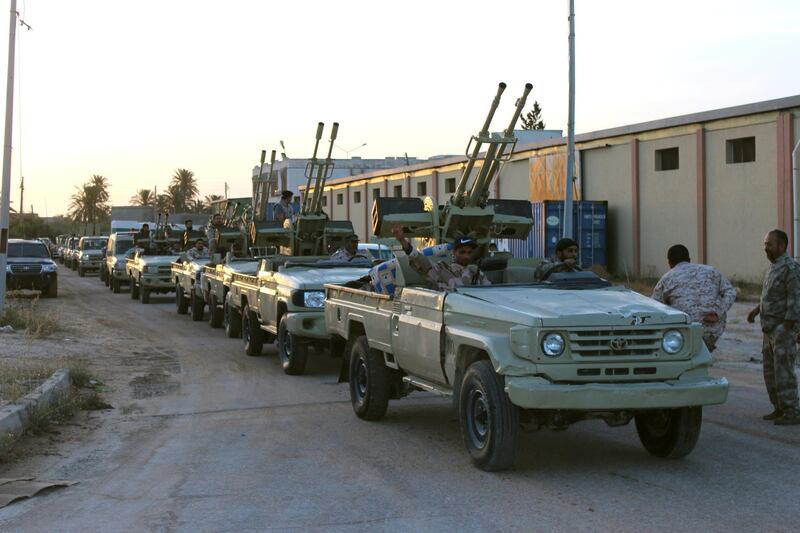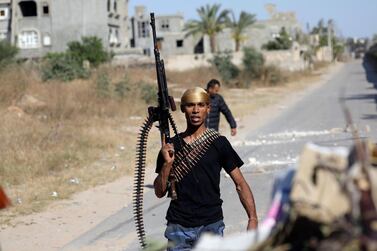Fayez Al Sarraj, prime minister of the Tripoli-based Government of National Accord, has urged US President Donald Trump to stop foreign support for Khalifa Haftar's offensive on Tripoli.
Field Marshal Haftar's Libyan National Army, which is allied to a rival administration in eastern Libya, mounted an offensive on the capital in early April, saying the GNA was controlled by what it called terrorists.
On Friday, the United Nations Security Council called on all parties to commit to a ceasefire and return to UN-led mediation.
Writing in the Wall Street Journal, Mr Al Sarraj said it was vital for the US to "prevent a bloody civil war with global implications ... I remain hopeful that President Trump will succeed where previous presidents have failed."
Mr Al Sarraj made his appeal a day after the GNA asked 40 foreign firms, including France's Total, to renew their licences or have their operations suspended.
European countries have taken a strong interest in Libya, both because of its natural resources and because of its status as a leading departure point for migrants attempting to enter Europe across the Mediterranean. France has supported Field Marshal Haftar as a way to fight militants in the country since the toppling of Muammar Qaddafi in 2011.
How closely Washington will listen to Mr Al Sarraj is not clear.
Last month, Mr Trump spoke by phone to Field Marshal Haftar and discussed "ongoing counterterrorism efforts and the need to achieve peace and stability in Libya," according to the White House.
The statement said Mr Trump "recognised Field Marshal Haftar's significant role in fighting terrorism and securing Libya's oil resources, and the two discussed a shared vision for Libya's transition to a stable, democratic political system."







